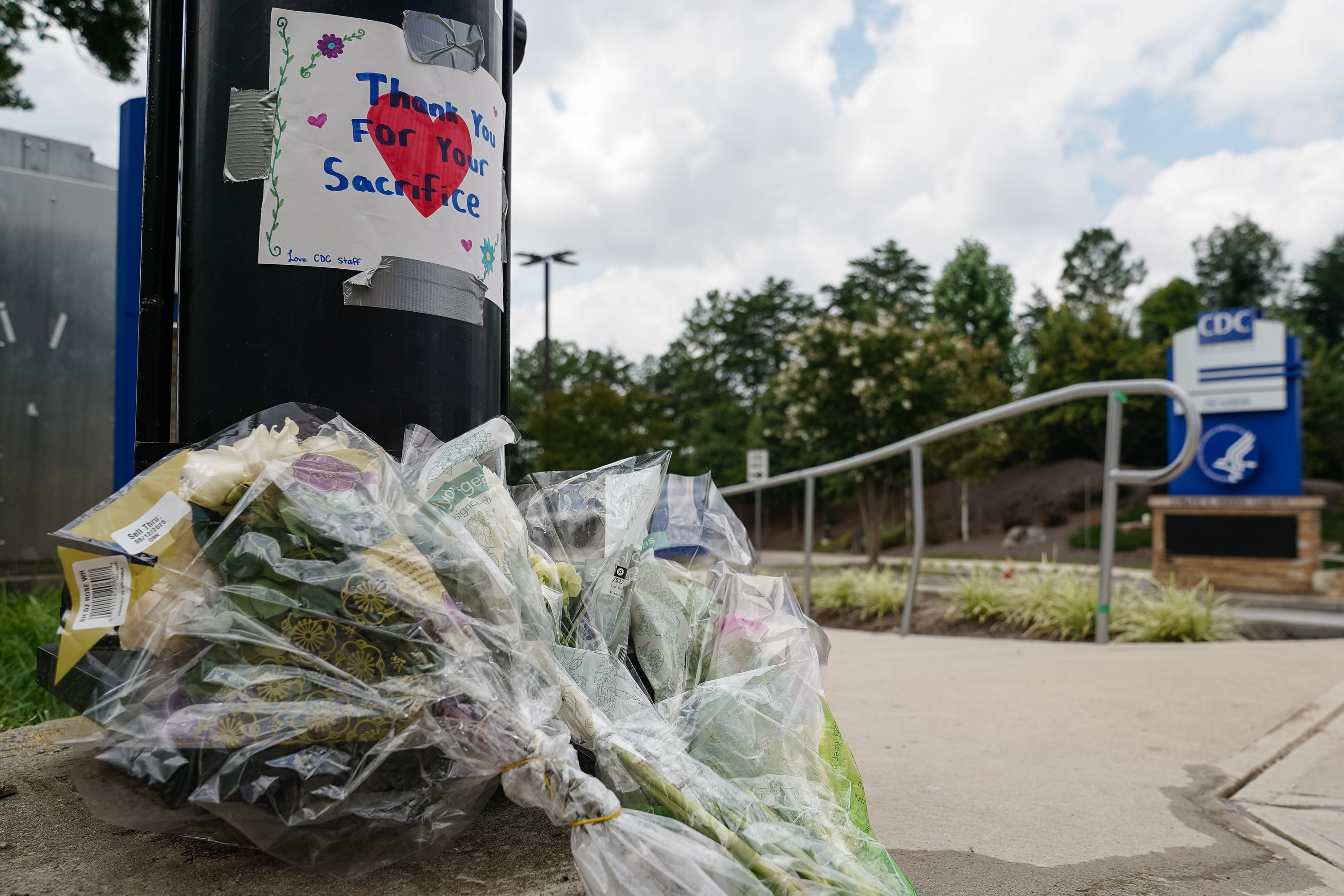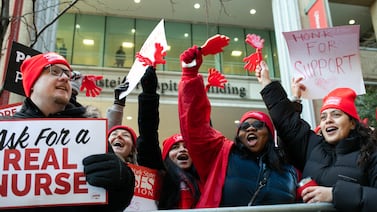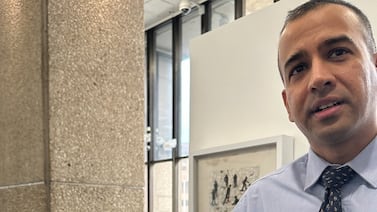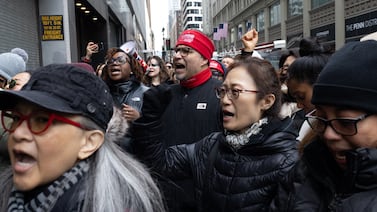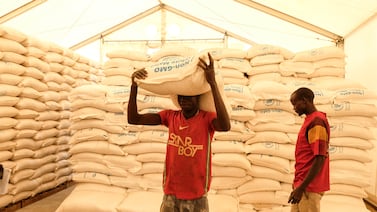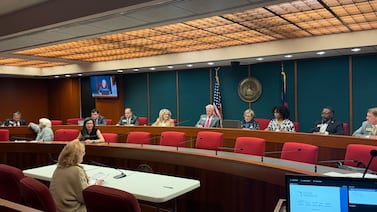This is a guest essay for Healthbeat. Public health, explained: Sign up to receive Healthbeat’s free national newsletter here.
I had an unusually long and emotionally challenging day in my clinic on Friday. When I broke the news to a patient that he had advanced HIV and that his sore throat was due to complications of AIDS, he began crying, terrified that he might die at any moment. A counselor and I sat next to him, trying to comfort him. As I looked into his eyes, tears forming in mine, I kept repeating, “We’re here for you. We’re going to protect you.”
At 5:30 p.m., I opened my phone and saw hundreds of messages in a private forum for current and former CDC employees. A man had fired bullets into several Centers for Disease Control and Prevention buildings. Colleagues were asking for help as they hid under their desks, sharing pictures of bullet holes in their office windows. There was praise and sadness for the slain police officer. There was anger, sorrow, and fear about the future of their work and their organization.
After that long day in clinic, I found it hard to summon either surprise or grief. All I could think was, “Just what I expected. I wonder which health department will be targeted next.”
Public health workers bound by commitment to help people
I worked at CDC for 20 years and had the privilege of serving my country as a United States Public Health Service officer at the national and local level in the United States, and in Asia and Africa. The most enduring lesson I learned from public health officials everywhere was that we were bound by common values.
From village health volunteers to ministers of health, there was a shared commitment to making other people’s lives better, helping friends and neighbors live healthier, safer, and longer lives. In doing so, we were helping to protect each other, advance justice, and increase economic opportunity.
We often disagreed about data, methods, and policies, sometimes vehemently, but those disagreements always took place within the framework of those common principles.
Covid brought backlash against public health
When Covid emerged, many of us hoped it would be a 9/11 moment for public health. Public health workers fight threats that are invisible: microbes, pollutants, metabolic diseases. There are no bumper stickers that say, “Thank you for protecting me from a disease I did not even know I was at risk of getting.”
We hoped Covid would help the public, media, and government recognize public health as public safety, as important as police, fire, and the military. We hoped it would trigger long-term investment in staff and systems, as happened with homeland security after 9/11.
The opposite happened. People lost agency over their lives, lost jobs and businesses, and endured physical and mental health harms. Instead of blaming the virus — and the ways we failed to protect against pandemics — many chose to blame the virus-control measures. Pandemic response critics rose to prominence by arguing that public health workers were motivated not by service and beneficence, but by fame, power, and money.
As a prominent public health official during Covid, I became inured to threats. Some came from anonymous social media accounts. Others happened in person. After an outdoor community meeting in fall 2020, a man followed me down the street, shouting obscenities and yelling in my face, “I hope your kids all get Covid and die, and then you do too.”
The hostility has not abated. Before he took office, the current Health and Human Services secretary declared that the CDC and public health agencies were corrupt. This past week, he said mRNA vaccines — the very vaccines recommended by the CDC and local public health agencies and received by over 200 million Americans — are now proven to be dangerous.
The man who shot at the CDC offices in Atlanta and killed a police officer, according to media reports, believed this, as well. He blamed vaccines for his ill health and sought vengeance on those he thought had harmed him.
I think the CDC attack felt unsurprising because all of us in public health have been under constant threat for almost five years. Just two months ago, I received an email that read: “You’re going to be targeted on June 27. Good riddance.”
Run. Hide. Fight.
CDC colleagues told me that the message they received on Friday was the same one now used in all active shooter scenarios: “Run. Hide. Fight.”
Many have chosen to run. Even before this year’s budget cuts, 20% to 30% of public health jobs were unfilled. Almost every county public health officer in California left during or after the peak of the Covid pandemic. Those of us in public health have skills valued in other sectors. We can make more money in industry or health care. We can live calmer lives in academia.
Others remain in public health but feel the need to hide. At social events, they obscure the name of the agency they work for, or avoid saying they work on infectious diseases, vaccines, or other contentious issues. One message sent to CDC staff this weekend instructed them to remove parking decals that say “CDC.” U.S. Public Health Service officers have been asking if they should now wear only civilian clothes.
Public health officials are choosing to fight
The third option is to fight. Public health has always struggled to build a strong constituency. Now, with attacks greater and more public than ever, there is no choice but to fight back.
CDC alumni have protested program cuts and vaccine policy changes, and have briefed elected officials to defend the agency. A new organization, Defending Public Health, is training advocates to speak up in communities, on social media, and with elected officials.
Many in public health cannot fight openly. They work for agencies that limit their ability to speak. They have families to protect. But those of us who can fight need to be present on every social media channel, in every community group, and at every civic event possible: town councils, school boards, boards of health, elected official town halls.
We need to share our personal stories and our values. We need to remind people that our work is to promote health and longevity. It may take decades of organizing to rebuild trust and create a lasting constituency. But the only way that will happen is if we keep sending the same message: “We’re here for you. We’re going to protect you.”
Dr. Jay K. Varma is a physician and epidemiologist. An expert in the prevention and control of infectious diseases, he has led epidemic responses, developed global and national policies, and implemented large-scale programs that saved hundreds of thousands of lives in Asia, Africa, and the United States.

